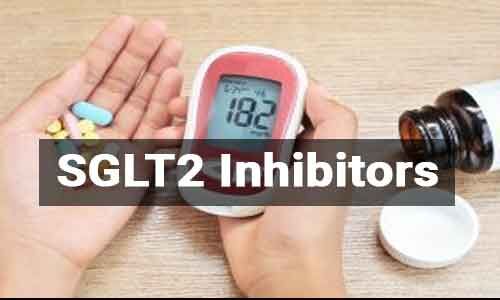- Home
- Medical news & Guidelines
- Anesthesiology
- Cardiology and CTVS
- Critical Care
- Dentistry
- Dermatology
- Diabetes and Endocrinology
- ENT
- Gastroenterology
- Medicine
- Nephrology
- Neurology
- Obstretics-Gynaecology
- Oncology
- Ophthalmology
- Orthopaedics
- Pediatrics-Neonatology
- Psychiatry
- Pulmonology
- Radiology
- Surgery
- Urology
- Laboratory Medicine
- Diet
- Nursing
- Paramedical
- Physiotherapy
- Health news
- Fact Check
- Bone Health Fact Check
- Brain Health Fact Check
- Cancer Related Fact Check
- Child Care Fact Check
- Dental and oral health fact check
- Diabetes and metabolic health fact check
- Diet and Nutrition Fact Check
- Eye and ENT Care Fact Check
- Fitness fact check
- Gut health fact check
- Heart health fact check
- Kidney health fact check
- Medical education fact check
- Men's health fact check
- Respiratory fact check
- Skin and hair care fact check
- Vaccine and Immunization fact check
- Women's health fact check
- AYUSH
- State News
- Andaman and Nicobar Islands
- Andhra Pradesh
- Arunachal Pradesh
- Assam
- Bihar
- Chandigarh
- Chattisgarh
- Dadra and Nagar Haveli
- Daman and Diu
- Delhi
- Goa
- Gujarat
- Haryana
- Himachal Pradesh
- Jammu & Kashmir
- Jharkhand
- Karnataka
- Kerala
- Ladakh
- Lakshadweep
- Madhya Pradesh
- Maharashtra
- Manipur
- Meghalaya
- Mizoram
- Nagaland
- Odisha
- Puducherry
- Punjab
- Rajasthan
- Sikkim
- Tamil Nadu
- Telangana
- Tripura
- Uttar Pradesh
- Uttrakhand
- West Bengal
- Medical Education
- Industry
All SGLT-2 inhibitors found promising for diabetes management in Indian settings: JAPI

Maharashtra: SGLT2 Inhibitors could be considered as an add-on to all antidiabetic agents currently used for diabetes management in the Indian setting, researchers from Maharashtra have reported.
In their study, published in the Journal of the Association of Physicians of India, they found that all the four SGLT2 inhibitors (Canagliflozin, Empagliflozin, Dapagliflozin, or Remogliflozin) are effective in reducing fasting blood sugar (FBS), HbA1c, body weight, post-prandial blood sugar (PPBS), and both systolic and diastolic blood pressure. Therefore, SGLT2 inhibitors or gliflozins can be the best choice to start early in patients with inadequately controlled type 2 diabetes mellitus (T2DM) receiving triple-drug therapy. This helps in significant weight reduction and controlling all parameters of glycemia.
For the management of type 2 diabetes, a handful of sodium-glucose co-transporter 2 (SGLT2) inhibitors are available in the Indian and global markets. However, there is a scarcity of head-to-head comparisons between different SGLT2 inhibitors. To fill this knowledge gap, Deepak Bhosle, Deogiri Diabetic Care Centre, Aurangabad, Maharashtra, India, and colleagues aimed to analyze the effect of different SGLT2 inhibitors on glycemic control and body weight in Indian patients with T2DM in a prospective, interventional, nonrandomized study.
The study included patients (N = 480) of either sex, aged ≥30 years, with inadequately controlled T2DM having HbA1c > 8.5%, and were receiving either Canagliflozin, Dapagliflozin, Empagliflozin, or Remogliflozin on the background of triple-drug therapy. In the study, patients were evaluated for HbA1c, fasting blood sugar, postprandial blood sugar, body weight, and systolic and diastolic blood pressure at baseline,12 and 24 weeks.
The study included a total of 480 patients who received either Canagliflozin (n = 120), Dapagliflozin (n = 120), Empagliflozin (n = 120), or Remogliflozin (n = 120).
The findings of the study were as follows:
- There was a significant reduction in levels of HbA1c, FBS, PPBS, body weight, systolic blood pressure (SBP), and diastolic blood pressure (DBP) at weeks 12 and 24 in all treatment groups.
- The difference in mean values of glycemic parameters and body weight was comparable across the treatment groups at weeks 12 and 24 but was not significant.
- Out of all 480 patients, 10 patients (2.08%) reported urinary tract infection (UTI), and five (1.04%) reported genital mycotic infection.
- All the five patients were females and treatment for UTI and mycotic infection was provided as required. The rest of the patients tolerated the therapy well.
"The findings suggest that all four gliflozins were similarly effective in achieving target glycemic levels and reduction in body weight. Also, a reduction in blood pressure was observed with the use of all four gliflozins," wrote the authors.
"Gliflozins, therefore, can be a possible choice for the management of diabetes in Indian settings," they concluded.
Reference:
Bhosle D, Indurkar S, Quadri U, et al. A Comparative Study of efficacy and safety of different Sodium Glucose Co-transporter 2 (SGLT-2) Inhibitors in the Management of Patients with Type II Diabetes Mellitus. J Assoc Physicians India 2022;70(6):52–55
Dr Kamal Kant Kohli-MBBS, DTCD- a chest specialist with more than 30 years of practice and a flair for writing clinical articles, Dr Kamal Kant Kohli joined Medical Dialogues as a Chief Editor of Medical News. Besides writing articles, as an editor, he proofreads and verifies all the medical content published on Medical Dialogues including those coming from journals, studies,medical conferences,guidelines etc. Email: drkohli@medicaldialogues.in. Contact no. 011-43720751


